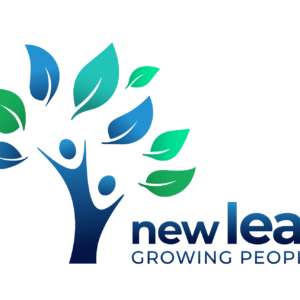Unveiling The Latest eLearning Trends
The eLearning industry has witnessed an explosive growth in recent years, driven by technological advancements and changing learning preferences. As the world continues to embrace digital transformation, eLearning has become an indispensable part of education and professional development. In this article, we delve into the current trends shaping the eLearning industry and how they are revolutionizing the way we learn and acquire knowledge.
Trends That Are Currently Shaping The eLearning Industry
Personalized Learning
One of the most significant trends in the eLearning industry is the rise of personalized learning experiences. With the help of Artificial Intelligence (AI) and Machine Learning algorithms, eLearning platforms can now analyze learners' preferences, strengths, and weaknesses. By leveraging this data, platforms can tailor content, learning paths, and assessments to cater to individual needs. Personalized learning not only enhances engagement but also improves learning outcomes, making it a key focus for eLearning providers.
Microlearning
In today's fast-paced world, learners prefer bite-sized, easily digestible content that can be consumed on the go. Microlearning, characterized by short modules or lessons, addresses this need perfectly. This trend allows learners to access relevant information quickly and efficiently, which is especially beneficial for professionals seeking just-in-time training. Microlearning also aligns well with mobile learning, as it can be easily accessed via smartphones and other portable devices.
Gamification
Gamification has proven to be a powerful tool for keeping learners motivated and engaged. By incorporating game-like elements, such as points, badges, leaderboards, and challenges into eLearning courses, educators can make the learning experience more enjoyable and interactive. Gamification fosters healthy competition among learners, encouraging them to strive for higher achievements and complete courses with enthusiasm.
Virtual And Augmented Reality (VR/AR)
The integration of Virtual and Augmented Reality technologies has brought a revolutionary change to the eLearning landscape. VR and AR offer immersive experiences, enabling learners to practice and apply their knowledge in simulated environments. From medical training to engineering simulations, these technologies provide practical learning opportunities, making complex concepts easier to comprehend. As the hardware becomes more accessible, VR and AR are set to become an indispensable part of the eLearning journey.
Video-Based Learning
Video-based learning has gained tremendous popularity in recent years due to its engaging and visually stimulating nature. Instead of relying solely on text-based content, eLearning platforms are increasingly incorporating video lectures, tutorials, and demonstrations. Video-based learning allows instructors to connect with learners on a personal level, improving information retention and understanding. Additionally, it caters to diverse learning styles, making it an essential element of modern eLearning strategies.
Artificial Intelligence And Chatbots
Artificial Intelligence is transforming the eLearning industry by automating administrative tasks, providing real-time feedback, and delivering personalized learning experiences. Chatbots, powered by AI, can offer instant support to learners, answering their queries and guiding them through the learning process. AI algorithms can also identify gaps in learners' knowledge and suggest appropriate resources to fill those gaps. As AI continues to advance, it will play an even more significant role in enhancing the efficiency and effectiveness of eLearning.
Mobile Learning
The ubiquity of smartphones has made mobile learning a dominant trend in the eLearning industry. Learners can access course materials, complete assignments, and participate in discussions from anywhere at any time. Mobile learning is especially popular among working professionals and students who seek flexibility in their learning schedules. eLearning platforms are adapting their interfaces to be mobile-friendly, ensuring seamless navigation and user experience on smaller screens.
Conclusion
The eLearning industry is evolving rapidly, driven by technological innovations and changing learner preferences. Personalized learning, microlearning, gamification, VR/AR, video-based learning, AI, chatbots, and mobile learning are some of the key trends reshaping the landscape of online education. These trends not only enhance engagement but also improve the effectiveness of eLearning initiatives, making education more accessible, efficient, and enjoyable for learners worldwide. As technology continues to advance, the eLearning industry will continue to grow and innovate, transforming the way we acquire knowledge and skills in the digital age.
In addition to these trends, the eLearning industry is also witnessing a surge in collaborative learning environments. Social learning features, like discussion forums, live webinars, and group projects, foster peer-to-peer interaction and knowledge sharing. Learners can collaborate with their peers globally, enriching their understanding through diverse perspectives. Furthermore, the integration of data analytics and learning analytics provides valuable insights into learner performance and course effectiveness, allowing educators to continuously refine their content and delivery methods. As the eLearning industry continues to evolve, these trends will shape a dynamic and inclusive learning ecosystem for the future.









